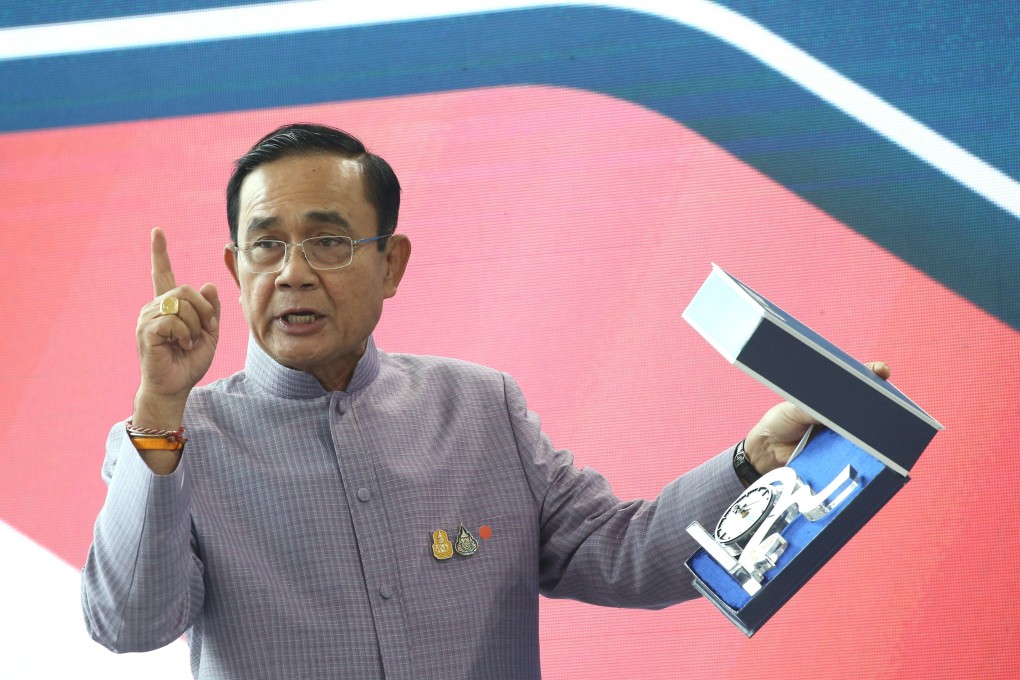In Thailand, ‘elephant ticket’ trends on Twitter amid talk of police corruption as PM Prayuth survives no-confidence vote
- An opposition lawmaker revealed a list of officers who allegedly gained promotions bypassing official selection process during a parliamentary debate
- The premier survived a no-confidence vote on Saturday after four days of arguments as protests calling for the government to resign continue

A list of Thai police officers who allegedly vaulted up the ranks of seniority has gone viral after an opposition lawmaker revealed it during the four-day debate on a no-confidence motion against the army-aligned administration of Prime Minister Prayuth Chan-ocha.
Move Forward Party’s Rangsiman Rome, who accused the administration of Prayuth and his deputy Prawit Wongsuwon of promoting a culture of patronage and cronyism inside the force, presented the so-called “Tua Chang” – or elephant ticket – list during the discussion on Friday.
The document from 2019 alleged that 16 police officers rose through the ranks bypassing the arduous official selection process.
“This might be the most dangerous thing I’ve ever done as an MP, but I must proceed because the people have elected me to represent them,” Rangsiman told the chamber.
“Let me ask you General Prayuth whether you’re aware that such corrupt practices were taking place? Or perhaps you are just protecting your network.”
The fast-tracking of individuals, “demotivates police officers … who want to work hard and be rewarded but without any connections … end up with no place to stand in their unit,” he added.
Thailand’s estimated 230,000-strong police force is a key player in the kingdom’s power games.